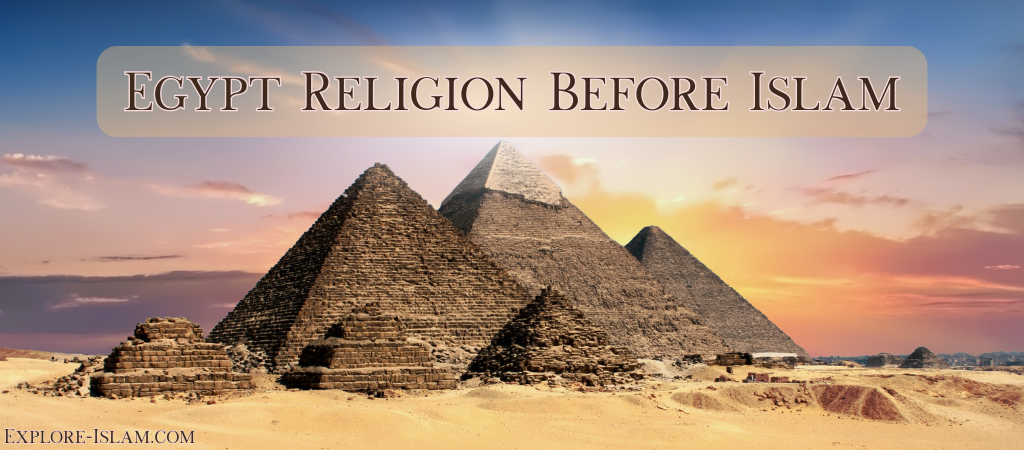Pre-Islamic Egypt was a land of religious and cultural complexity, shaped by centuries of foreign occupation. The ancient Egyptian religion centered on gods like Ra, Isis, and Osiris deteriorated under Greek and Roman rule. Religion, once a source of unity, was now used as a means of division and oppression.
Religious Turmoil Under Foreign Rule
Foreign occupation splintered Egypt’s religious landscape, weakening ancient tendencies and encouraging division and persecution among pagans, Christians, and Jews.
- Decline of Indigenous Religion: Ancient Egyptian religion collapsed under Greek and Roman occupation, as foreign religions and tendencies took precedence.
- Introduction of Christianity and Judaism: Christianity, specifically Coptic Christianity, evolved during Roman and Byzantine occupation but was persecuted. Jewish enclaves also existed but were prone to repression.
- Paganism and Conflict: Paganism, which had been at the center of Egyptian life, yielded as Egypt became a battlefield for competing religions, leading to a fragmented society.
A Society Of Oppression
Under foreign rule, especially during the Greek, Roman, and Byzantine periods, Egypt became a society marked by systemic oppression. Heavy taxation burdened the local population, while wealth and power were concentrated in the hands of imperial elites and local governors loyal to distant empires.
Ordinary Egyptians, regardless of their faith, faced economic exploitation and had little say in governance. This imbalance fostered deep resentment and weakened social cohesion.
Religious and ethnic divisions were further exacerbated by policies that favored certain groups over others. Pagan traditions were suppressed, Jews were periodically persecuted, and Coptic Christians, though growing in number, faced harsh restrictions and violence under Byzantine authority.
Instead of unifying society, religion became a tool of control and division, contributing to a climate of instability, mistrust, and ongoing conflict across Egypt’s diverse communities.
The Coming Of Islam: Justice And Unity
The arrival of Islam marked a sea change in Egyptian history.
Islam brought revolutionary transformation, putting an end to centuries of foreign domination and religious persecution.
The conquest of Egypt by Amr ibn al-As during 640-641 CE marked a climactic point in Islamic history. He took a Muslim army and beat the Byzantines, taking key forts like Babylon Fortress and Alexandria. The conquest placed Egypt under the rule of Islam, introducing justice, religious tolerance, and an end to Byzantine oppression.
Under Islamic rule, Egypt witnessed transformative reforms that reshaped its social, religious, and cultural landscape, fostering equality, tolerance, and harmony, the most important of them:
Social Justice: Islamic rule abolished exploitative taxes and monopolies by the ruling class, promoting equality.
Religious Tolerance: Islam allowed Christians, Jews, and Muslims to coexist peacefully, putting an end to inter-sectarian strife.
Cultural Reforms: Islam introduced legal and social reforms, giving importance to justice, respect, and welfare for all.
Conclusion:
Before Islam, Egypt’s religious scene was fractured by foreign rule, with ancient beliefs fading and tensions rising among pagans, Jews, and persecuted Christians. Oppression, heavy taxes, and religious conflict defined society under Greek, Roman, and Byzantine control.
Islam’s arrival in the 7th century ended centuries of turmoil, replacing division with justice and tolerance. Under Muslim rule, Egypt saw fairer governance, peaceful coexistence among faiths, and a revival of social and cultural harmony.











